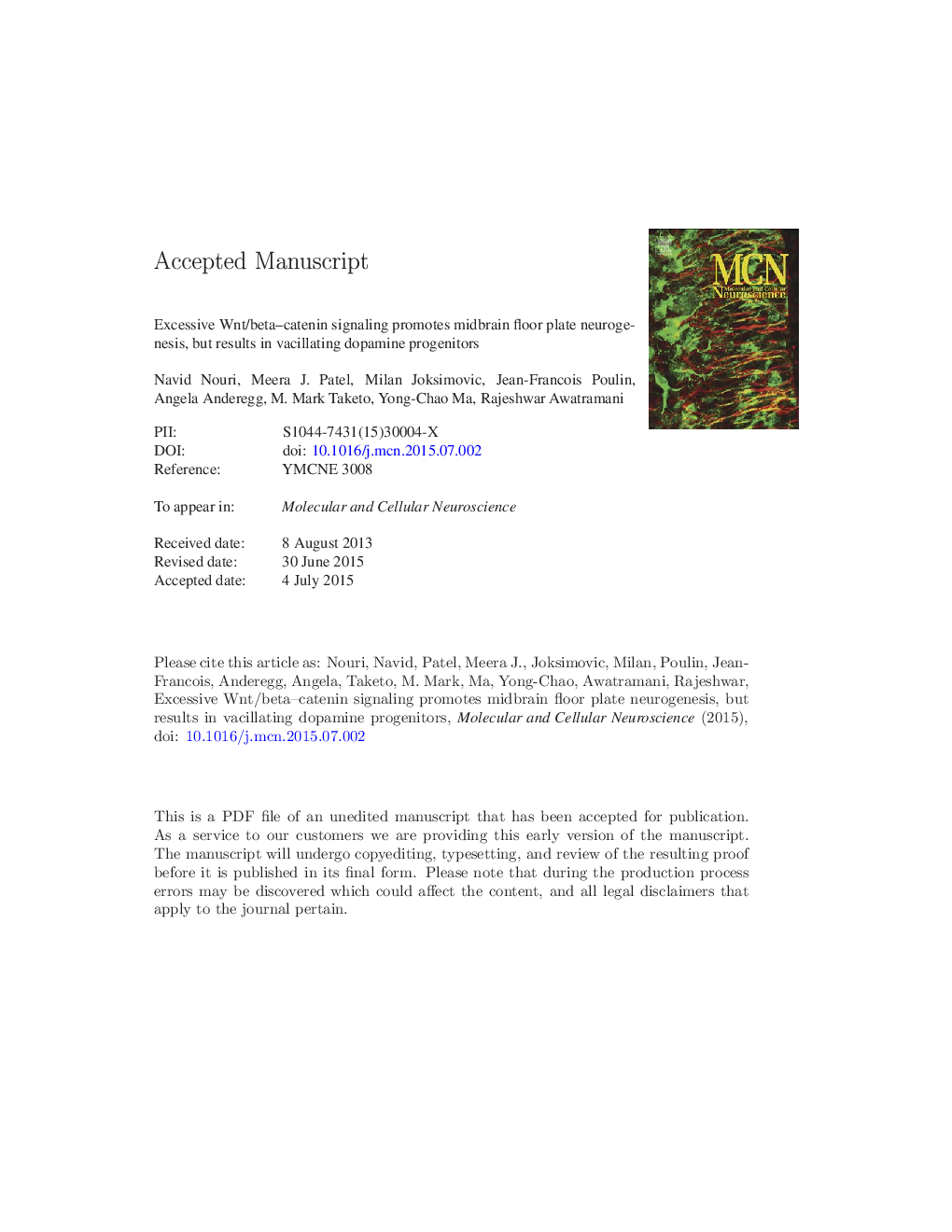| Article ID | Journal | Published Year | Pages | File Type |
|---|---|---|---|---|
| 8478529 | Molecular and Cellular Neuroscience | 2015 | 43 Pages |
Abstract
To examine the effects of excessive Wnt/beta-catenin signaling on mDA specification and neurogenesis, we have analyzed a model wherein beta-catenin is conditionally stabilized in the Shh + domain. Here, we show that the Foxa2 +/Lmx1a + domain is extended rostrally in mutant embryos, suggesting that canonical Wnt/beta-catenin signaling can drive FP expansion along the rostrocaudal axis. Although excess canonical Wnt/beta-catenin signaling generally promotes neurogenesis at midbrain levels, less tyrosine hydroxylase (Th)+, mDA neurons are generated, particularly impacting the Substantia Nigra pars compacta. This is likely because of improper progenitor specification. Excess canonical Wnt/beta-catenin signaling causes downregulation of net Lmx1b, Shh and Foxa2 levels in mDA progenitors. Moreover, these progenitors assume a mixed identity to that of Lmx1a +/Lmx1b +/Nkx6-1 +/Neurog1 + progenitors. We also show by lineage tracing analysis that normally, Neurog1 + progenitors predominantly give rise to Pou4f1 + neurons, but not Th + neurons. Accordingly, in the mutant embryos, Neurog1 + progenitors at the midline generate ectopic Pou4f1 + neurons at the expense of Th + mDA neurons. Our study suggests that an optimal dose of Wnt/beta-catenin signaling is critical for proper establishment of the mDA progenitor character. Our findings will impact embryonic stem cell protocols that utilize Wnt pathway reagents to derive mDA neuron models and therapeutics for Parkinson's disease.
Related Topics
Life Sciences
Biochemistry, Genetics and Molecular Biology
Cell Biology
Authors
Navid Nouri, Meera J. Patel, Milan Joksimovic, Jean-Francois Poulin, Angela Anderegg, M. Mark Taketo, Yong-Chao Ma, Rajeshwar Awatramani,
